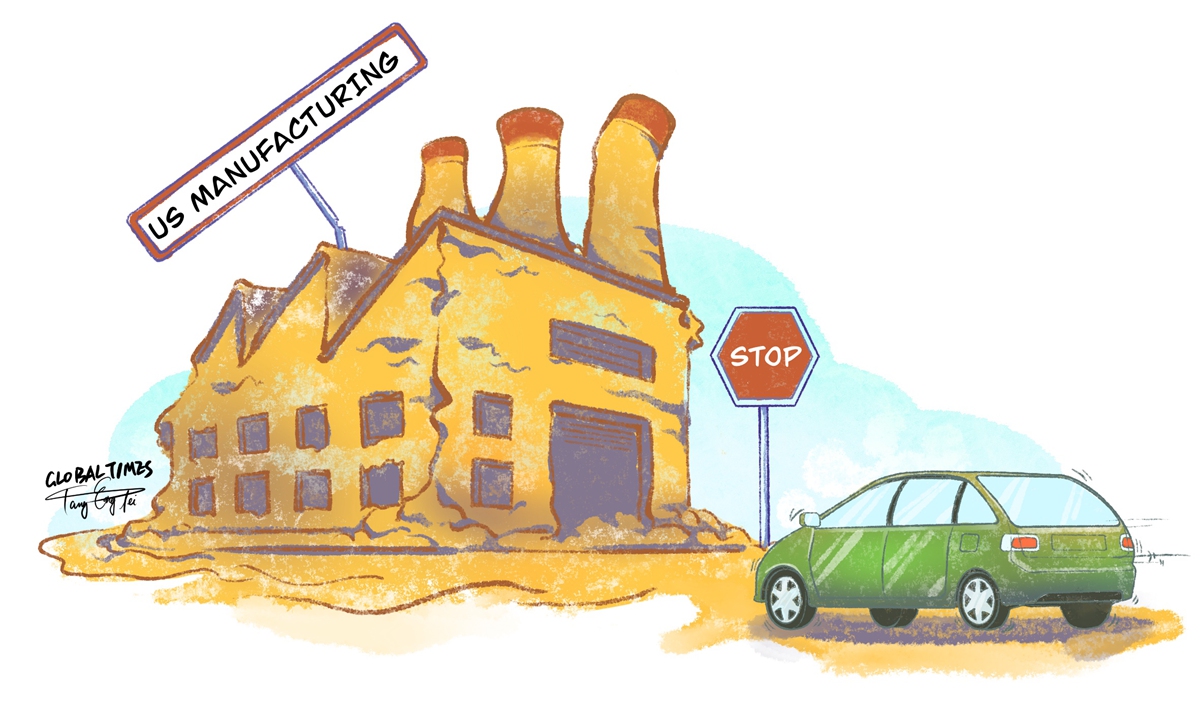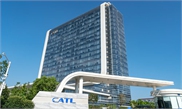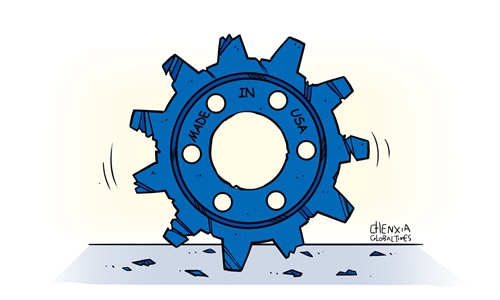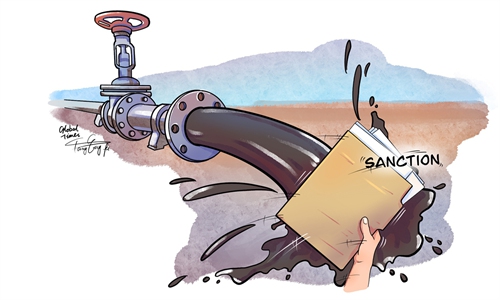
Illustration: Tang Tengfei/GT
It is not surprising that Marco Rubio, an infamous anti-China senator, is spouting his trademark nonsense again. His latest target was CATL, China's leading supplier of batteries for electric vehicles (EV).Rubio on Tuesday asked the Biden administration to review Ford Motor's deal to use technology from CATL as part of the automaker's plan to spend $3.5 billion to build a battery plant in the US state of Michigan, Reuters reported. Amid escalating US-China tensions, anti-China politicians are obsessed with similar topics as they seek to gain a political advantage, but their anti-China hysteria will badly damage the US economy.
Lisa Drake, Ford's vice president of EV industrialization, was quoted by CNBC as saying that the Ford will own the new facility through a wholly owned subsidiary instead of operating it as a joint venture with CATL. The US auto giant said its wholly owned subsidiary will use LFP battery cell knowledge and services provided by CATL.
CATL has been ramping up its overseas expansion thanks to the fast adoption of new-energy vehicles globally, but so far the Chinese battery maker has been relatively restrained in expanding its manufacturing footprint in the US. We believe CATL, a leading lithium-ion battery maker, has enough funds to build a factory in Michigan, but it doesn't choose this option but adopts a novel ownership structure in which Ford owns 100 percent of the battery factory. Even though Ford has clarified that it will own and control the facility with no foreign investment or US tax dollars going to CATL, Rubio is keen to ramp up anti-China hysteria and use the deal as a tool to accumulate his own political capital.
The typical anti-China hysteria comes at a time when the Biden administration is adopting a strategy aimed at resurrecting US manufacturing and EV has been a key field in Washington's "reshoring" push. Using the Inflation Reduction Act signed into law in August, the White House hopes to ignite a domestic manufacturing boom, but the Ford-CATL deal could help offer a window to observe how the typical anti-China hysteria could restrict the development of US manufacturing sector.
The US auto giant said earlier this week that Ford and its battery tech collaborators have announced $17.6 billion in investment in EV and battery production in the US since 2019, leading to more than 18,000 direct jobs in the country and more than 100,000 indirect jobs. Adding LFP batteries to Ford's EV lineup and backing a US LFP battery plant are key parts of the company's Ford+ plan, partly because LFP batteries are exceptionally durable using fewer high-demand, high-cost materials and will help power a variety of Ford's next-generation of EV passenger vehicles.
Through protectionist measures like the Inflation Reduction Act, the Biden administration is desperately attempting to lure companies from various countries to build factories in the US, but the current political atmosphere in the country is restless with lousy hostile voices against China, which has greatly hindered Washington's efforts to attract manufacturing investment.
A report released by McKinsey said in 2022 that the market for battery cells will likely grow, on average, by more than 20 percent per year until 2030, reaching at least $360 billion globally, so companies and governments must move quickly to gain a foothold in the fast-growing battery market for EVs. It's a little bit ironic that the Biden administration is trying to revitalize American manufacturing but when people want to share economic cake with it by strengthening cooperation to offer technology and information services, some US politicians push it away.
Normal economic and trade cooperation between Chinese and US companies should not be politicized. Elites in Washington should aware that if a fair business environment is under threat, it will be followed by the possible decline of US economic hegemony, and American manufacturing industry will be difficult to revive again.
The author is a reporter with the Global Times. bizopinion@globaltimes.com.cn



